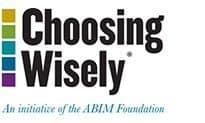UK doctors are likely to have access to online modules to learn about the dangers of overprescribing medicines.
The Academy of Medical Royal Colleges yesterday launched the UK arm of the Choosing Wisely campaign, which aims to encourage doctors and patients to have conversations about the value of treatments and address the issue of using unnecessary therapies.
It follows similar campaigns in US and Canada, where healthcare professionals have been able to access a range on online education tools concerning the overuse of healthcare resources and how to help patients understand the issue.
In the US doctors have access to a range of modules from various medical colleges and academies, including the American Academy of Pediatrics, the American College of Physicians and the American College of Cardiologists.
Doctors working in Canada are able to use Confronting Unnecessary Care: Choosing Wisely Canada, an online module accredited by MDcme, a consortium of Canadian medical schools. An app version is available for both Google and Apple devices.
A spokesperson for the Academy of Medical Royal Colleges said the UK would “probably” follow a similar approach, although it was “too early to tell”.
“Common sense would dictate the need to integrate that sort of training and education. But we are nowhere near that stage.”
The spokesperson added that it would likely be up to individual medical royal colleges to develop and implement these online tools for their members, suggesting they may even end up being part of the revalidation process.
Work on the project will begin later this month when the Academy of Medical Royal Colleges sends an audit to each medical royal college and faculty asking them to identify five treatments or tests which are of questionable value.
The results of this audit will be published in the autumn of 2015, after which there will be a major public campaign led by the Academy of Medical Royal Colleges to make doctors and patients aware of the items contained on the list.
Following a similar audit in Canada, the Choosing Wisely identified hundreds of treatments with questionable value, including the use of antipsychotics as a first choice to treat behavioural and psychological symptoms of dementia, and the use antibiotics for patients with infections that are likely to be viral rather than bacterial.
The UK campaign was backed by an article in the BMJ written by Aseem Malhotra. In the article Malhotra writes: “A culture of “more is better,” where the onus is on doctors to “do something” at each consultation has bred unbalanced decision making.”
He adds that Choosing Wisely aims to “rebalance discussions about the risks and benefits of tests and interventions”, with the potential that “doing nothing might be the favourable option.”
Dame Sue Bailey, chair of the Academy of Medical Royal Colleges added: “It’s not and will never be about refusing treatment or in any way jeopardising safety. It’s just about taking a grown-up approach to healthcare and being good stewards of the resources we have.”

